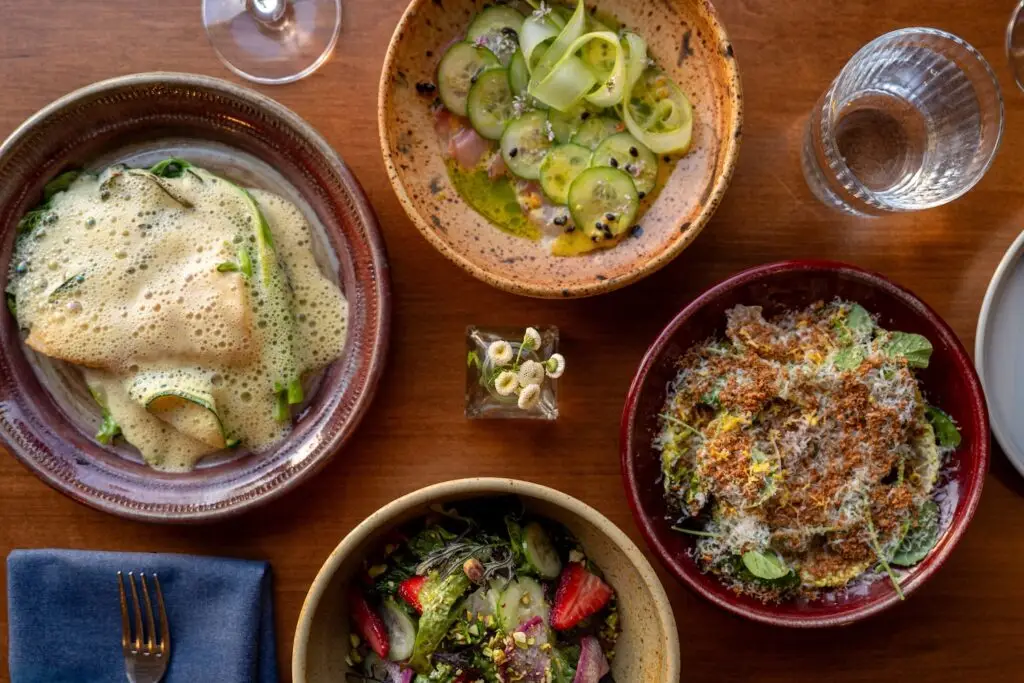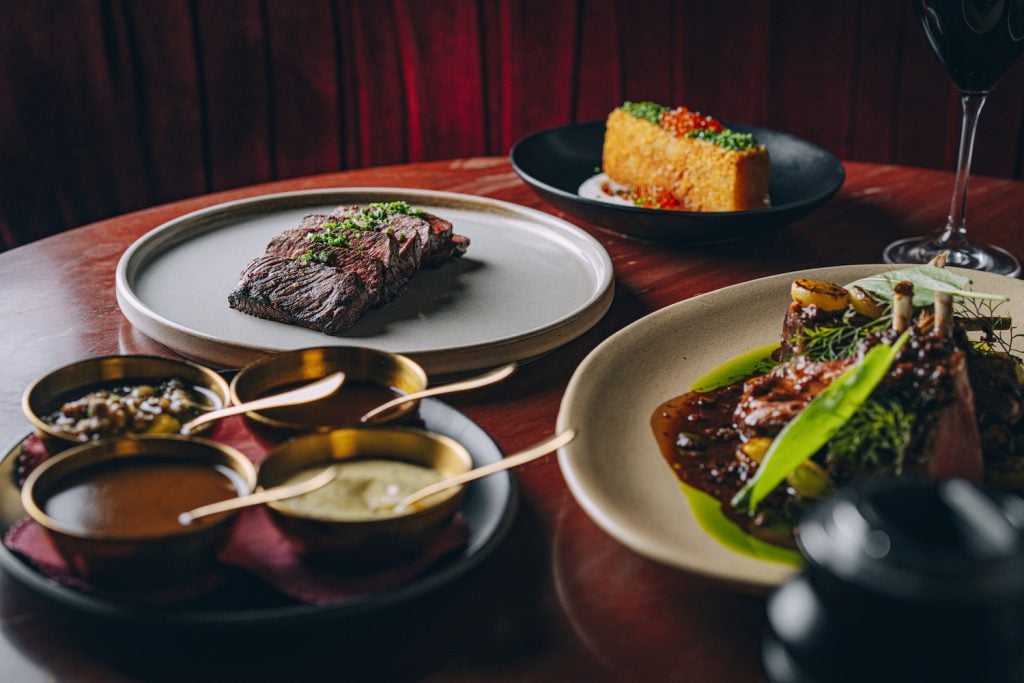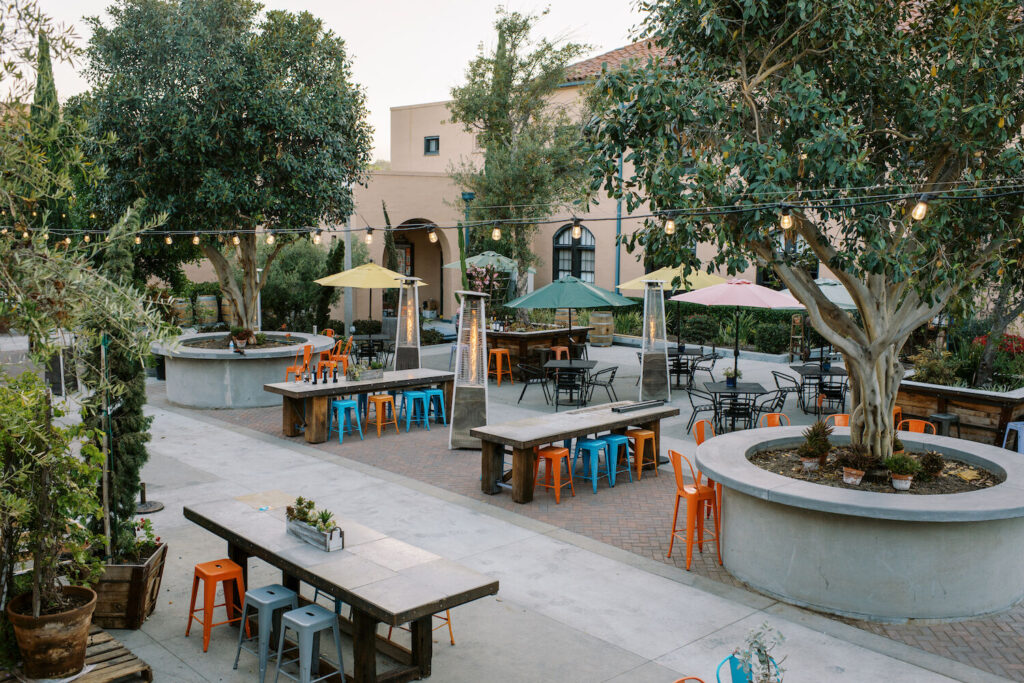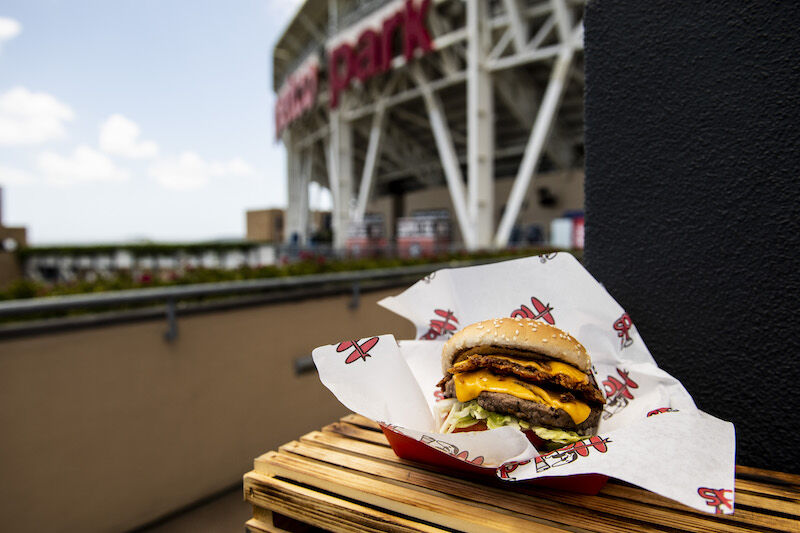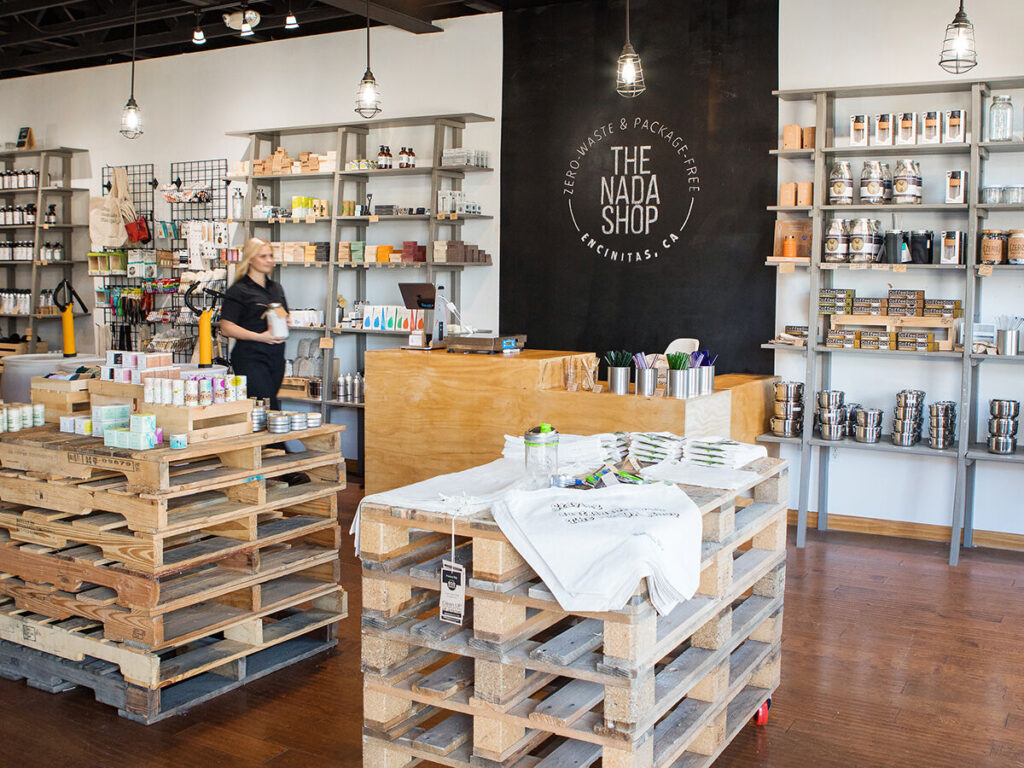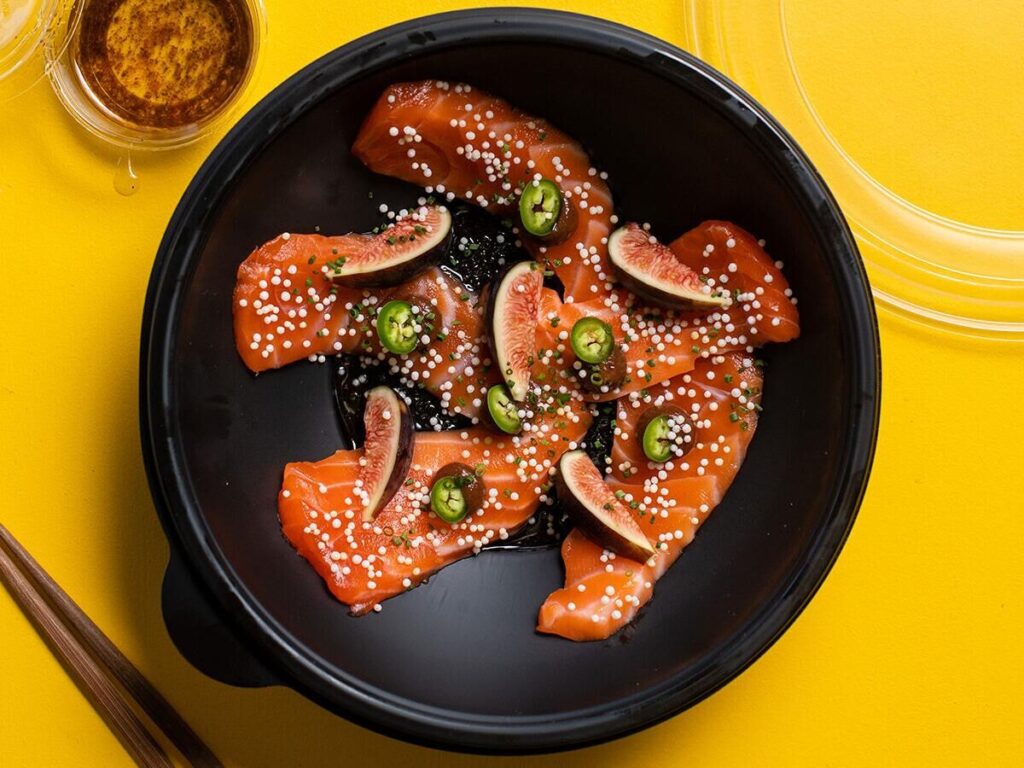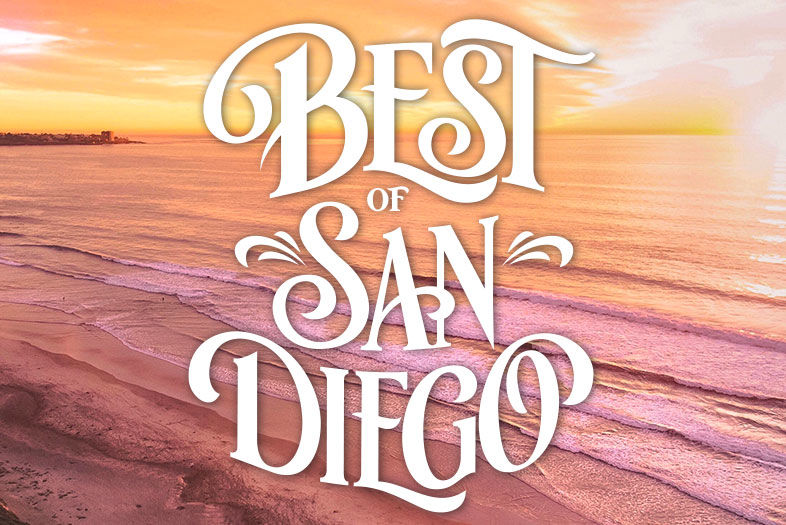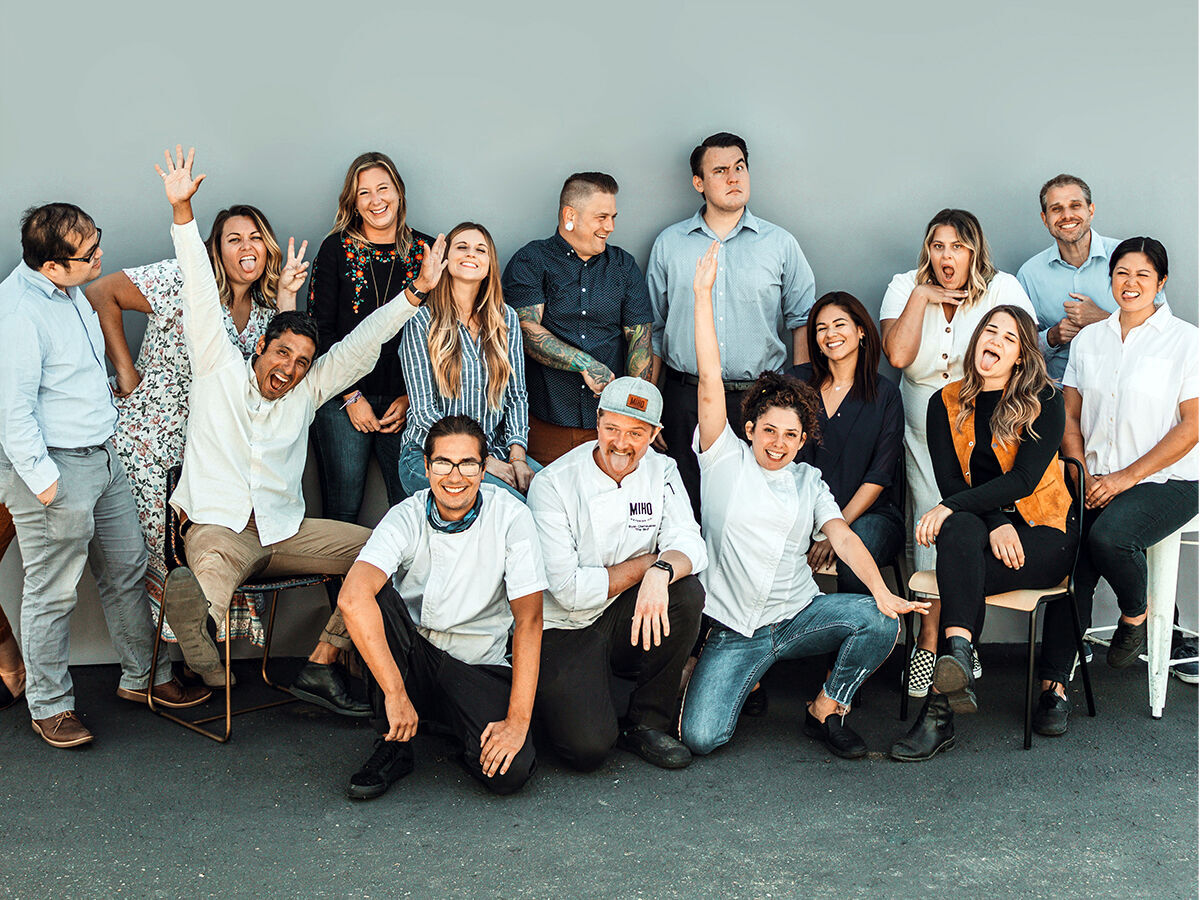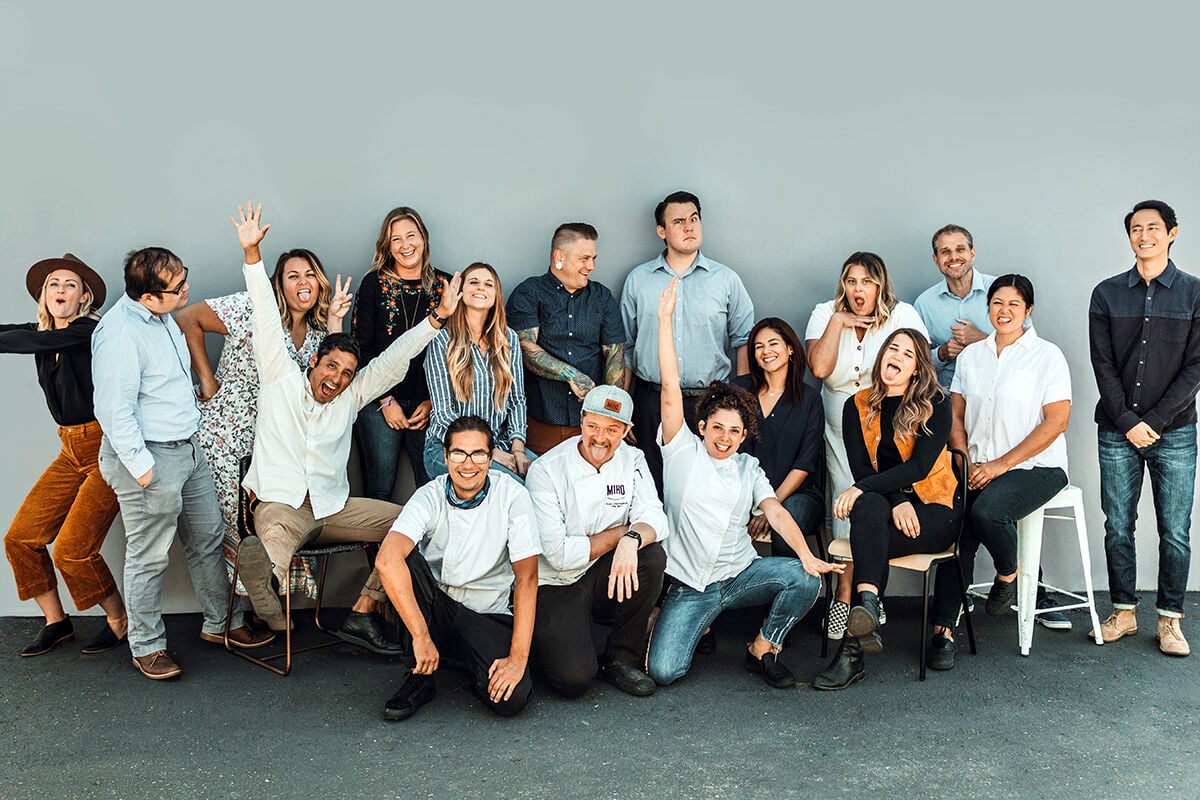
The Feed / Miho Catering Co.
Kevin Ho and his business partner, Juan Miron, were in Vegas at a catering conference when news of the pandemic broke eight months ago (or 60 months or however long ago this started). A flood of cancellations for their MiHo Catering Co. started coming in. Hitting snooze on reality like many of us did, Ho came home to San Diego and went straight to a long-planned beach camping trip with his family.
The intent, as with most modern vacations, was to unplug from the bleeps and bloops and notifications. Not a shot.
“I was in denial a little bit,” says Ho. “But I kept getting blasted by my staff, rightfully so. I told my wife, ‘I need to plug in somewhere because I think the world is ending.’ So I went to a coffee shop and found out, oh… the world is ending.”
Catering hasn’t gotten the big “help” headlines during all this. Most media has focused on saving the restaurants, because they often have higher rent and fixed costs. Catering had been a bright spot in the food world—a US market that went from $58 billion in sales in 2017 to $64 billion in 2019. Restaurants, which operate on tiny margins (three to five percent, on average), were filling their bookkeeping gaps by catering events.
Then, events were canceled. Weddings, holiday parties, retirement parties, birthday parties, baby showers—all gone. Some caterers switched to providing meals for workers on the front lines. They tried doing family-style meals, delivering groceries to clients, tried everything.
MiHo, one of the city’s top caterers, went from over 100 employees to fewer than 30. Instead of competing with restaurants for meal-delivery business, they chose to help companies who had invested big in office culture—kombucha on tap, good coffee, food and drink as a work perk—re-create a little of that magic for their newly remote workforce. They’re also spearheading a movement to include mobile COVID-19 testing as one of their services.
I spoke with Kevin Ho this morning about the view from the catering world:
Troy Johnson: What was the initial effect?
Kevin Ho: On the catering events side, that completely disappeared. We went dark right away. Unfortunately we had to furlough a ton of people. Our staff was bigger than it had ever been; that was such a huge disappointment—to tell that many good, hard-working people they don’t have a job.
How’d you reinvent yourself?
We had to identify what changes would be cyclical and what was a structural, long-lasting change to the industry we know and love. We already had a pretty strong delivery program that we launched in 2017, so thankfully we were always approved by county health guidelines to keep offering delivery. But our bread and butter is corporate, and that fell off the map entirely.
You’ve started doing select events again. How are you pulling it off?
As things started to improve, we developed our own health and safety protocols. That was treacherous, because everything was so uncharted and untested. It took us time to embrace the fact that it’s an essential, core responsibility. I truly believe that in larger firms you’ll see executive roles like “chief health and safety officer.’ That’s just part of the job now. We have policies we vote on and amend according to health orders, and training manuals and policies that we agree to with our clients.
What specifically are you asking your clients to agree to?
Our policies are very strict. We’re demanding small guest counts, private residences, single-household. We really look to restaurants. Right now they’re not supposed to be serving guests indoors, so our practices go hand-in-hand. For the most part, people who are still inquiring about events aren’t as inclined to be as safe and health conscious as we would like them to be. There are [caterers] who are more stringent than we are, but a lot of our competitors have abandoned all public health and safety. We lose business to firms who are just going to let people gather without any kind of masks or restrictions. I’m not judging them at all. When I look back, my team and I will be proud of the way we went about it. We’d rather leave money on the table.
And you’re starting to test everyone at your events?
We have created some partnerships with local operators who provide licensed rapid antigen testing. We have registered nurses who we’ll send to clients, or they can do drive-thru testing at our site. They’ll get the results in 15 minutes before we do the event. Testing is just going to become part of everyday life. Even though the testing doesn’t eliminate COVID, it will allow schools and offices and hospitality to conduct their activities with a higher level of assurance.
Is this a moneymaker?
It’s not a moneymaker. We spent so long writing our testing program and I will happily share it with every other operator. It’s crazy—I’m used to talking about food temperatures, and now we’re creating mobile COVID testing units. I hope that every single American can have free access to testing and ideally we can help with that. I hope Amazon starts shipping testing kits to homes. I hope one day I will have tests that my family and I can take at home weekly.
Tell me about re-creating the ultimate company break rooms.
The huge opportunity we saw was, all of these employees are working from home, some very happily and safely. Our corporate clientele tend to be firms that have the same values we do—purpose-driven and really, really appreciate their teams and want to create an environment they’re proud of. So break rooms had kombucha on tap and Topo Chico water and good coffee. I would go to some of our clients’ offices and I’m like, “Dang, can I work here?” So we talked to them and said, “You’re still that kind of company; let us help you create that.”
So you created a mobile version?
We’ll ship packages to their employees to give them those creature comforts and the same pride that went into their office culture. We’ll have locally roasted coffee beans, because you used to roll into work and get free coffee. Handmade snacks. We’re making immunity supplements because wellness is one of our biggest values.
But it goes beyond that?
Yeah, it’s called Concord. It’s basically a single-payer system with individual ordering. So if a client wants to do an employee appreciation lunch or celebrate something, employees can go to our site and order their meal, then we’ll deliver it to their homes across San Diego County. We’re also launching experiences. We have our gastro-truck, so for the bigger occasions, a company can send our food truck to grill grass-fed burgers fresh right in front of someone’s house.
You can’t make money off driving a truck to a single person’s home and cooking them a burger.
Ha. No. There’s no profit for us. What we’re actually creating is a corporate subscription membership where you can subscribe for a monthly fee for each of your employees—you get access to delivery meals, the gastrotruck, multicourse meals, gift boxes for birthdays and anniversaries or hitting certain company goals. We’re also doing multicourse dinners with beer and wine pairings.
Do you see events coming back?
Until people can get together, we’re not going to break the rules and push for this. For me as the owner of this company, I really need catering. That’s what keeps food on my kids’ table. But personally, I don’t think you should have a wedding today. I really hope you call us and we can book one for 2021 or 2022.
Catering hasn’t gotten the press that restaurants have. How’s that hurt you?
To be honest, I’d rather support my local coffee shop and pizza place and burger joint than support MiHo, who’s headquartered in Kearny Mesa. With my $10 for dinner tonight, I want to support the mom-and-pop that I know really needs my business. The headlines and PR and stuff, we don’t want to take that away from them. Obviously we’re getting our ass kicked, but so are other people.
What’s next?
PARTNER CONTENT
We were thinking about doing a “Save the Dives Tour.” We’ll park the gastrotruck in front of our favorite dive bars in the city, serve food, and help dive bars sell drinks to go.
